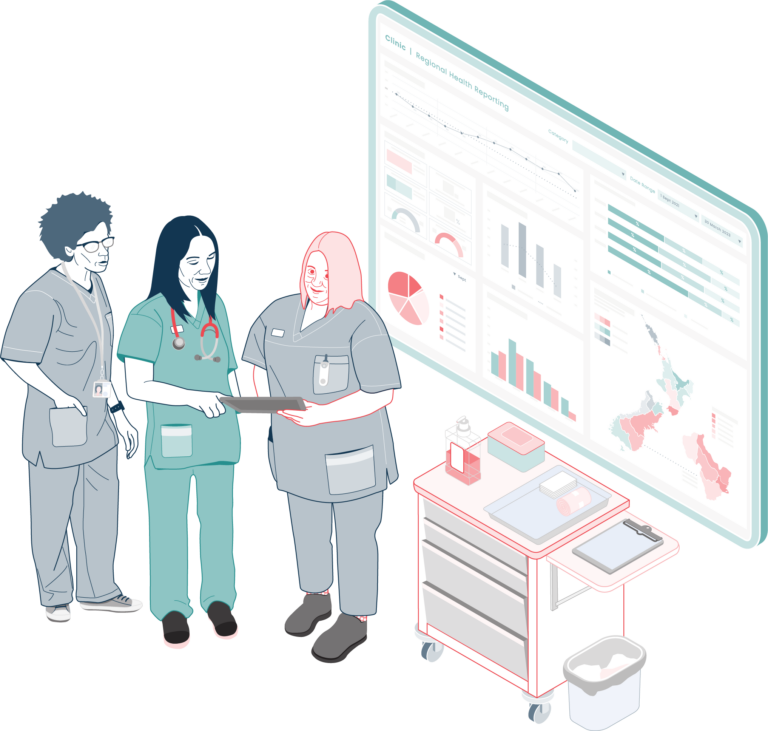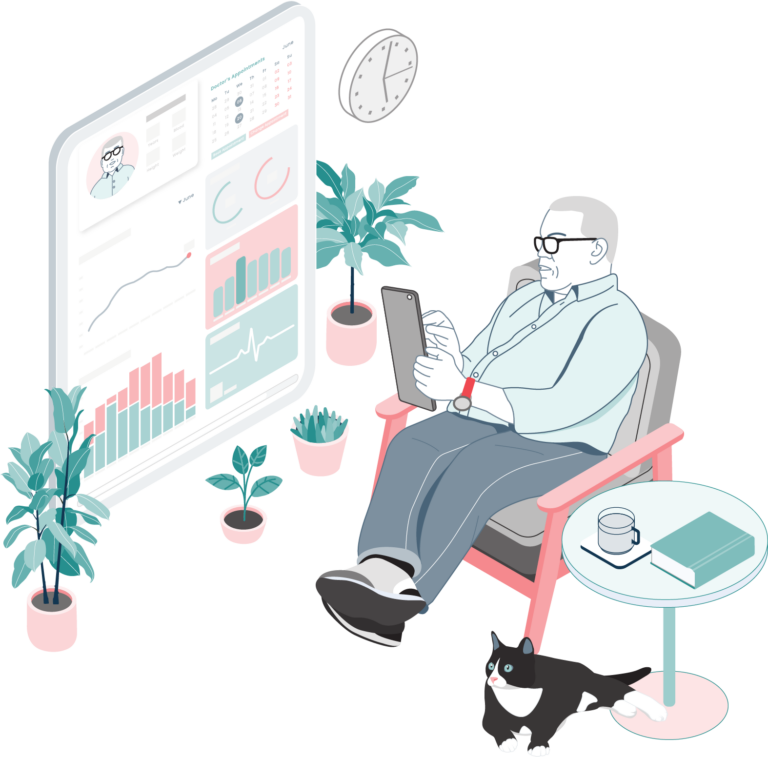We’ve seen data challenges across the healthcare sector for a long time. The reality is that health systems are complex and fragile to build and maintain. They also affect everyone across the health and social services sectors.
Medicly evolved from these frustrations and the risks that come with them. Our focus is to use innovative software to remove the challenges of accessing health data for analytics. We’ve done this through focusing on what health and social systems require and forcing technology to work for our communities.

Organisations have always needed to share sensitive information across business and technology boundaries. Software products have met this need with aggregating data repositories into one platform or complex data engineering tools to move and transform data over the internet. These solutions don’t work for many organisations, so sensitive data sharing is often delivered with ad hoc tools and processes that fail to meet security, auditing and governance legislation.
Medicly is a data sharing product that automates the movement and management of sensitive health data. It removes the majority of the work for customers to share data across boundaries while maintaining end-to-end security.
The Medicly data exchange provides a safe, secure and easy method for government and service providers to transfer data, alongside clear guidelines about how data is used. Customers have the flexibility to choose where their data is stored, and who has accessed it.
A ‘smart pipe’ for safe, secure transfer of data
A Data exchange is, in effect, a smart pipe that facilitates safe, efficient and controlled transfer of data. Using the Data Exchange means evidence based health and social support decisions can be made sooner, improving service delivery and enhancing people’s lives.
Unlike a database, a Data Exchange doesn’t store any data. It’s a hybrid client and cloud-based solution that makes it easier for data to travel securely between organisations. Simply connect, map and exchange.
It’s 2023 and data sharing at scale is still a problem

As a society we are increasingly data rich, but information poor. Effective social and health service delivery relies on understanding the environment, context and challenges of people in need. Those who can help need access to the right information at the right time. Those who receive help need to be able to navigate multiple health and social systems without falling between the cracks.
Health Information and patient data from healthcare providers is available but it is commonly siloed within a multitude of disconnected technologies and systems and is not easily available to retrieve. It’s bizarre given how much social and environmental factors impact on health and wellbeing and how much improving social wellbeing can reduce healthcare costs.
Unless social services are delivered adequately, then an individual’s problems get worse until they must turn to emergency or hospital care, our most expensive health service.
If we don’t provide mental health care, housing and other social services to the people that need them, they will eventually require treatment for chronic illnesses. This is the classic ambulance at the bottom of the cliff approach. Data sharing can empower social and health services to intervene before problems escalate and become more complicated and costly to address. Having accurate data can enable innovation across the eMental health ecosystem, and help lay the foundations for the use of Artificial Intelligence with eMental health technologies.

Community Consequences
More transparent sharing of data will not only improve the health and wellbeing of individuals, but it can also transform communities. Typically, the more common health issues in less well-off communities are not isolated to individuals; they impact a large proportion of the population. Data sharing enables a high-level view of the health and wellbeing of a community.
Without data, pushing through change is more challenging. With access to data, you can correlate primary care information in a community with the factors that might be causing health and wellbeing issues. Government agencies could easily identify communities at risk and allocate resources to deal with health and wellbeing issues before they become bigger problems, because they always become bigger problems.
Data is the missing piece in the puzzle. If the organisations and people that care about health and wellbeing in this country want to tackle the many problems in the sector, data will play a key role in fixing those problems.
What Makes Medicly Different?
The health system is complicated, with a lot of moving parts between patients, doctors, agencies and NGOs. What makes Medicly different is we have an innovative data processing platform that automates the technology tasks required for data sharing while enforcing proper governance and security. This will drastically improve the accountability of the sector.
For the healthcare and social services sector, we can operate as a common carrier between patients, NGOs and agencies and apply a better way of operating without requiring long delivery timeframes. At the same time, Medicly brings a world leading governance and security model so that healthcare data can be put to work to reduce inequality.
An all-round solution for sensitive health data transfer
We understand that the healthcare sector needs quick, reliable access to health data. Medicly tackles the challenges that affect the time, energy, and cost of healthcare. It’s easy to set up, operate, and maintain. It’s secure and compliant, so you can focus on getting the valuable insights you need.
Medicly overcomes health data sharing challenges
Medicly is a comprehensive solution that overcomes these critical medical data-sharing challenges.
- Meets security and privacy requirements out of the box, saving development and compliance time and effort.
- Integrates systems without needing APIs, manual extracts, or complex technologies, speeding up initial time-to-solution while reducing long-term support costs.
- Applies specific data standards such as SNOWMED or FHIR to ensure the interoperability required to share data effectively across complex healthcare networks.
Learn more about Medicly at: www.medicly.co.nz





